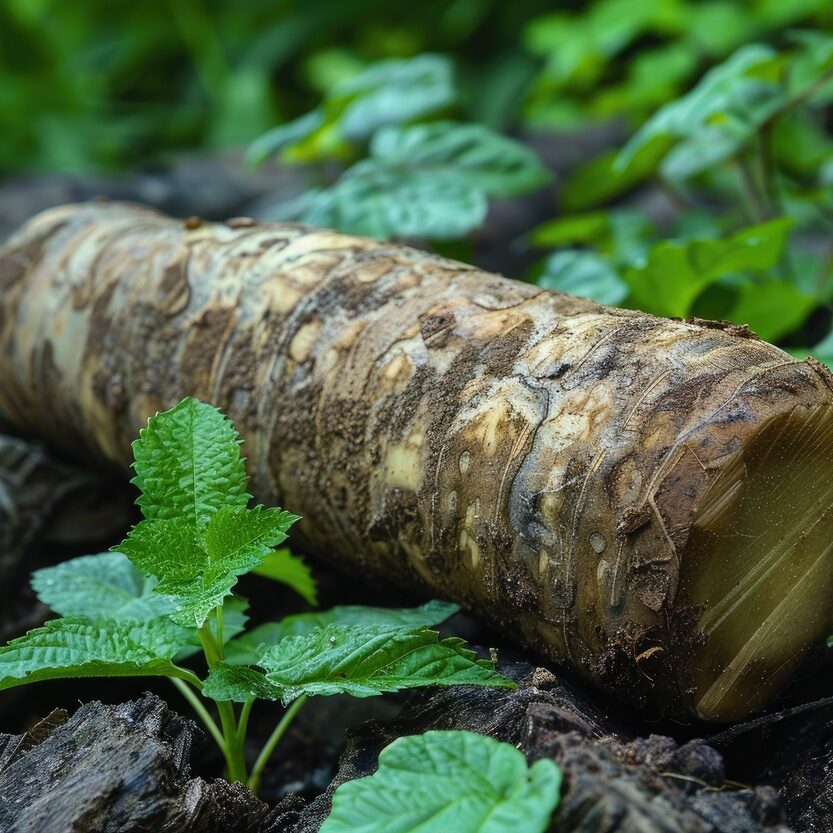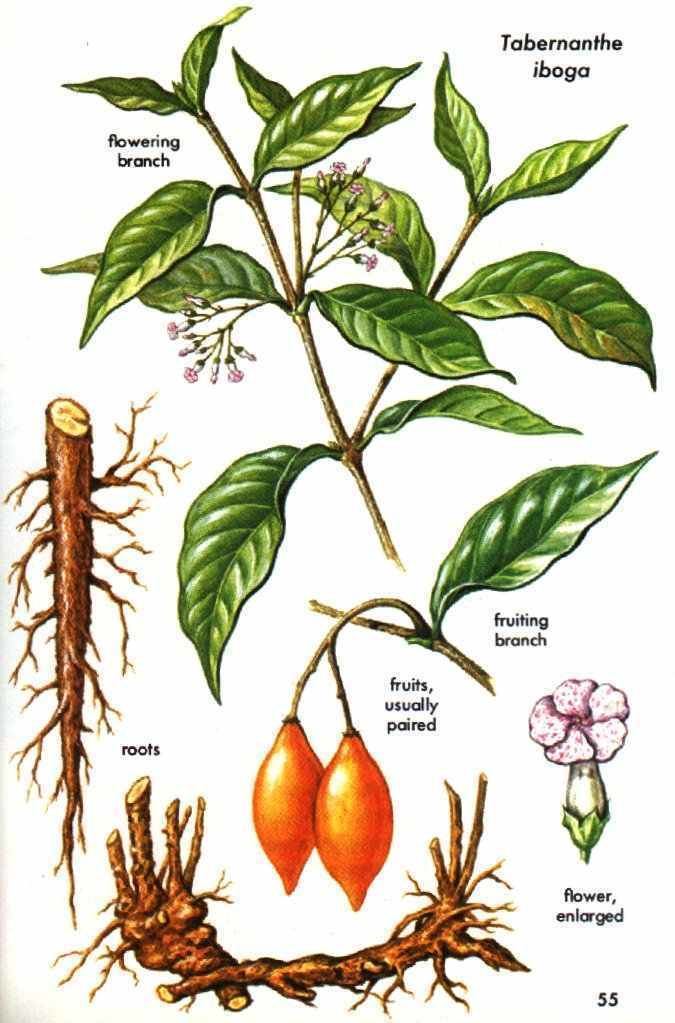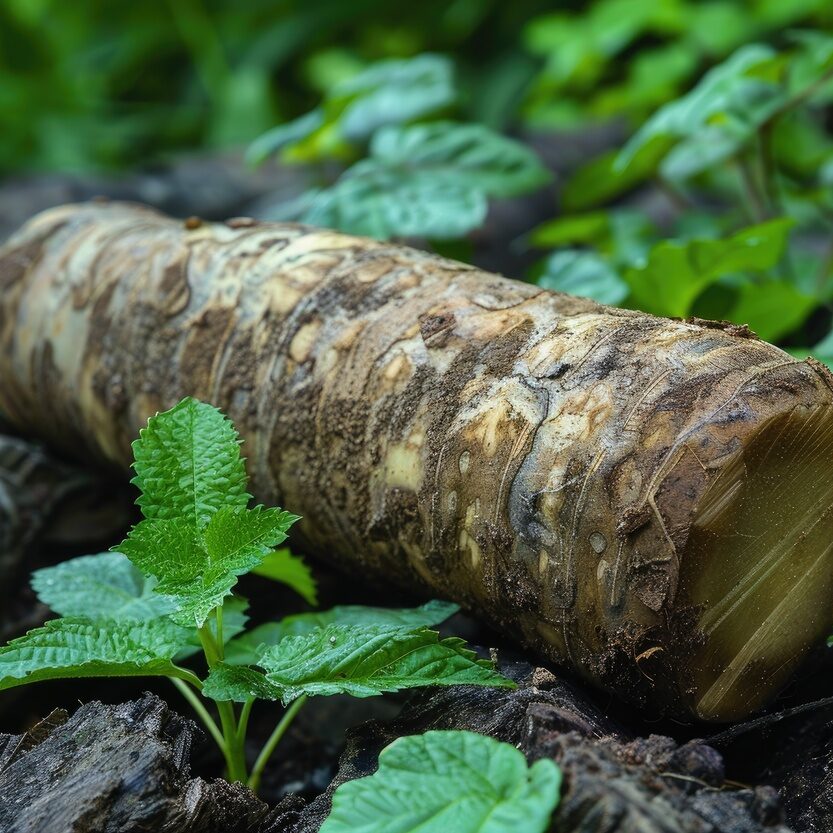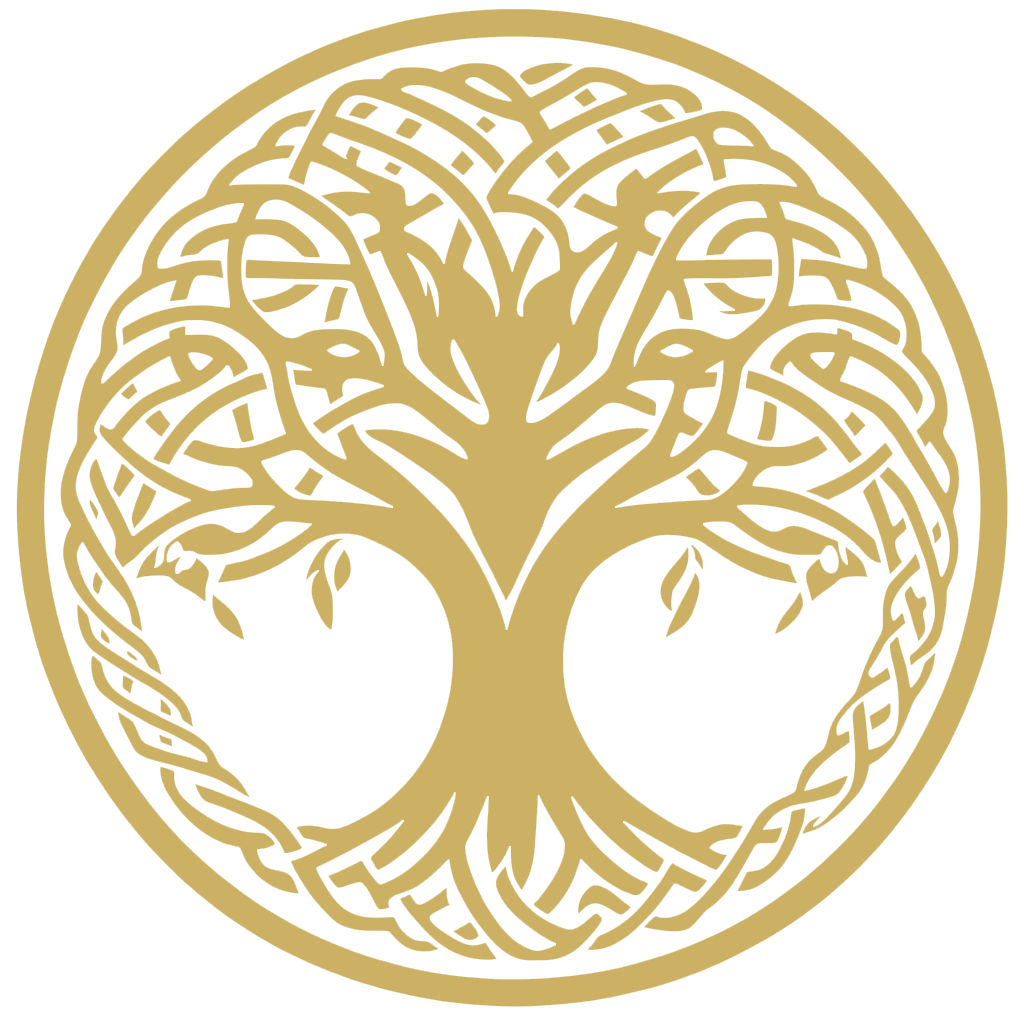What is Iboga?
The Sacred Root of Transformation
Iboga (Tabernanthe iboga) is a sacred plant native to the rainforests of Central West Africa, particularly Gabon, Cameroon, and the Republic of Congo. For centuries, this powerful plant teacher has been central to the spiritual and healing traditions of the Bwiti people, who use the root bark in initiation ceremonies and healing rituals.
The medicine contains several alkaloids, with ibogaine being the most studied for its unique effects on the nervous system and consciousness. Unlike many other plant medicines, Iboga often creates a waking dreamstate characterized by vivid visions, emotional processing, and profound insights about one's life journey.

The Plant:
The Iboga plant is a shrub that can grow up to 2 meters tall, with yellow flowers and orange fruits. The alkaloid-rich root bark is the part traditionally used in ceremony, where it's typically consumed as ground powder or brewed in tea. The plant grows slowly and requires specific rainforest conditions, making ethical and sustainable harvesting practices essential for its preservation.
The Experience:
An Iboga journey typically lasts 12-24 hours, though its effects can continue to unfold for days afterward. The experience often progresses through distinct phases:
Physical sensations as the medicine enters the body.
Deep introspection, often with eyes closed, accessing memories, insights, and sometimes communication with ancestors or the spirit of Iboga itself.
Processing insights and beginning to understand their application to daily life.
The Benefits:
Many describe the Iboga experience not as hallucinogenic but as revealing—offering access to deeper truths about oneself and one's place in the world.
Iboga offers unique healing potential that bridges traditional wisdom and contemporary understanding. While research is still emerging, both scientific studies and generations of traditional knowledge point to several key benefits:
Neurological Benefits:
-
Stimulates neuroplasticity and neurogenesis (the creation of new neural pathways)
Psychological Benefits:
-
Supports release of limiting beliefs and emotional blockages
-
Enhances self-awareness and psychological insight
Spiritual Benefits:
-
Creates opportunities for deep connection with inner wisdom
-
Offers access to ancestral wisdom and intuitive knowledge
Addiction Interruption:
-
Widely recognized for its potential to interrupt addiction patterns
Root Bark
At Medicine Spirit, we work with traditional Iboga root bark rather than isolated ibogaine. We believe that the plant's complete intelligence, including all its alkaloids and spiritual properties, offers the most holistic healing experience. While we honor the valuable work being done in ibogaine clinics, our approach focuses on creating ceremonial containers that balance traditional wisdom with contemporary needs.
Our retreats incorporate elements of Bwiti tradition while remaining accessible to those without prior experience of these practices. We create a bridge between worlds—honoring the medicine's roots while providing context appropriate for modern seekers.

Iboga vs. Ibogaine
Traditional Root vs. Isolated Compound
When exploring this medicine, it's important to understand the distinction between traditional Iboga root bark and isolated ibogaine. While both come from the same plant, they offer different experiences and are used in different contexts.
Traditional Iboga Root Bark:
-
Contains a full spectrum of alkaloids that work synergistically
-
Used in traditional Bwiti ceremonies for spiritual connection and healing
-
Typically administered within a cultural context with specific rituals and protocols
-
Often described as producing a more grounded, manageable experience
-
Contains wisdom accumulated through generations of traditional knowledge
Isolated Ibogaine:
-
Concentrated single alkaloid extracted from the plant or synthesized
-
Primarily used in clinical settings for addiction interruption
-
Typically administered within a medical framework

Missoko Bwiti Tradition
Bwiti is an ancient spiritual tradition that originated with the indigenous forest peoples of Gabon. When the Fang people migrated to the region in the 19th century, they adopted and adapted these practices, incorporating elements of their own traditions along with some Christian influences. The result is a living, evolving tradition that continues to adapt while maintaining core principles and practices.
Missoko Bwiti emerged as a healing tradition, distinct from other Bwiti branches with its focus on community wellness rather than solely initiation. Missoko practitioners are known as Nganga—healers who work with plant medicines and spiritual technologies to maintain balance in individuals and communities.
Key Elements of the Tradition:
Bwiti recognizes the intelligence and spirit in all natural beings and elements
Honoring and communicating with ancestors is central to the tradition
Healing happens within the context of community, not just individually
Knowledge comes through personal experience rather than dogma or text
Rhythm, song, and dance are essential technologies for transformation
Ceremonies and Rituals:
Traditional Bwiti ceremonies incorporate many elements beyond the medicine itself:
-
Sacred Space - Carefully prepared ceremonial environments
-
Music - The mungongo (mouth bow), ngombi (harp), and other instruments create the sonic landscape for journeying
-
Dance - Specific movements that support the medicine's work
-
Fire - The sacred flame that illuminates the space physically and spiritually
-
Community - The presence and support of community members throughout the journey
Working with Iboga and other plant medicines carries serious responsibilities—to participants, to the traditions these medicines come from, and to the ecosystems that sustain them. At Medicine Spirit, we're committed to ethical practice in all aspects of our work.
